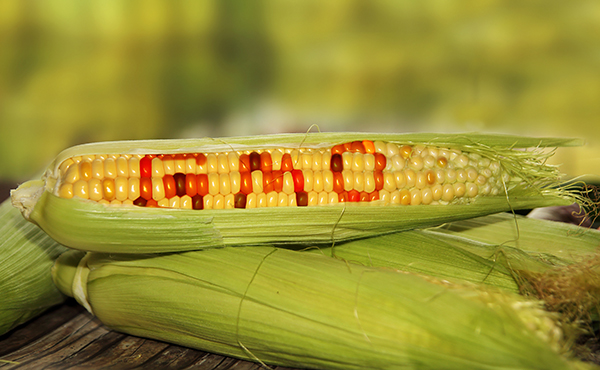- A fierce early 20th-century conflict in Kentucky and Tennessee, where small tobacco farmers battled the American Tobacco Company for fair prices and better livelihoods, culminating in the Black Patch War.
- Farmers like J.T. and Kate Strand faced dire economic hardships due to debt and poverty, exacerbated by post-Civil War financial constraints and the monopolistic control of the American Tobacco Company, which dictated low prices.
- Farmers organized cooperatives and collectively withheld crops to demand fair prices, marking a significant grassroots movement. This resistance was a fight for independence, community and a way of life against corporate dominance.
- The Burley Tobacco Society launched an unprecedented agricultural strike, refusing to plant crops until fair prices were offered. This bold move forced the American Tobacco Company to concede, marking a temporary victory for the farmers.
- Despite the initial success, internal divisions and financial difficulties led to the collapse of the cooperative movement by 1910. The Tobacco Wars underscore the challenges of combating corporate power, the importance of addressing structural issues and the enduring impact of collective action and grassroots organizing in the pursuit of justice.
In the early 20th century, amidst the rolling hills of Kentucky and Tennessee, a fierce battle was waged – not with guns and cannons, but with the sweat and determination of farmers fighting for their livelihoods.
This is the story of the Tobacco Wars, a dramatic chapter in American history that pitted small tobacco farmers against the colossal American Tobacco Company. At the heart of this struggle was the Black Patch War, a movement that sought to reclaim power and dignity for those who toiled the land.
In the book "
The Politics of Despair: Power and Resistance in the Tobacco Wars" by Tracy Campbell, the narrative begins with the idyllic image of the American family farm, a symbol of independence and democracy. However, the reality for many farmers in the tobacco belt was far from idyllic. J.T. and Kate Strand, a young couple from Muhlenberg County, Kentucky, epitomized the hardships faced by countless farmers. As J.T. once lamented, "The harder we worked, the less we had." Their plight was a common one, as farmers found themselves ensnared in a cycle of debt and poverty, exacerbated by the financial constraints imposed after the Civil War.
The emergence of the American Tobacco Company in the 1890s further compounded these challenges. This industrial behemoth monopolized the tobacco industry, dictating prices and leaving farmers with little bargaining power. In response, farmers in Kentucky and Tennessee began to organize, forming cooperatives to challenge the oppressive industrial order. They gathered in churches, schoolrooms and courthouses, pooling their resources and collectively withholding their crops from the market until fair prices were offered. This grassroots movement marked the birth of the Black Patch War.
The Black Patch War was more than just a fight against low prices; it was a struggle for the soul of rural America. Farmers were defending a way of life that valued independence and community over corporate dominance. They were resisting a system that threatened to reduce them to landless tenants, trapped in a cycle of debt and dependency. As one farmer put it, "We are fighting for our homes, our families and our future."
The conflict reached a dramatic climax in 1908 with the Burley Tobacco Society's decision to launch an
unprecedented agricultural strike. For the first time in American history, farmers refused to plant a crop, demanding better prices and fair treatment. This bold move was a gamble, but it paid off. The American Tobacco Company, facing a shortage of burley tobacco, eventually relented and purchased the pooled crops at the prices demanded by the farmers.
The 1908 strike was a remarkable achievement, a testament to the power of collective action. It was the high point of agrarian organizing in Kentucky and Tennessee and it remains an unparalleled victory in the annals of agrarian protest movements. However, the triumph was short-lived. Internal divisions, financial difficulties and the relentless opposition of the tobacco trust soon took their toll.
By 1910, the Burley Tobacco Society had collapsed and the Planters' Protective Association was in rapid decline. The dream of a cooperative movement that could transform the lives of tobacco farmers faded away. The Tobacco Wars ended not with a bang, but with a whimper.
The Tobacco Wars underscore the challenges faced by farmers in their struggle against corporate power. They reveal the limitations of cooperative movements that fail to address the underlying structural issues of agricultural credit and land ownership. Moreover, they highlight the importance of
democratic decision-making and grassroots organizing in any successful social movement.
The Tobacco Wars also serve as a poignant reminder of the enduring human spirit and the resilience of those who refuse to give up in the face of adversity. The farmers who fought in the Tobacco Wars were not just fighting for themselves; they were fighting for a vision of a better world.
Learn more about the book "
The Politics of Despair" by watching the video below.
This video is from the
BrightLearn channel on Brighteon.com.
Sources include:
Brighteon.ai
Brighteon.com
 Parler
Parler Gab
Gab










